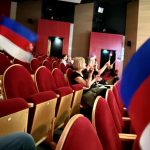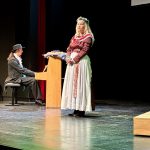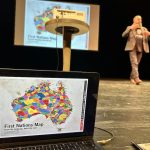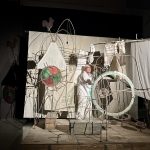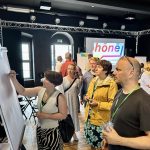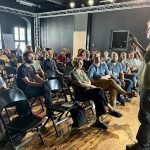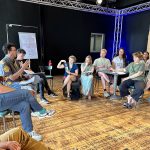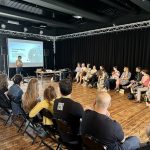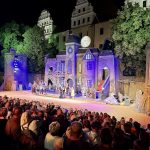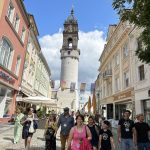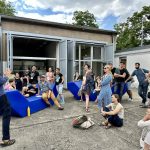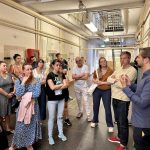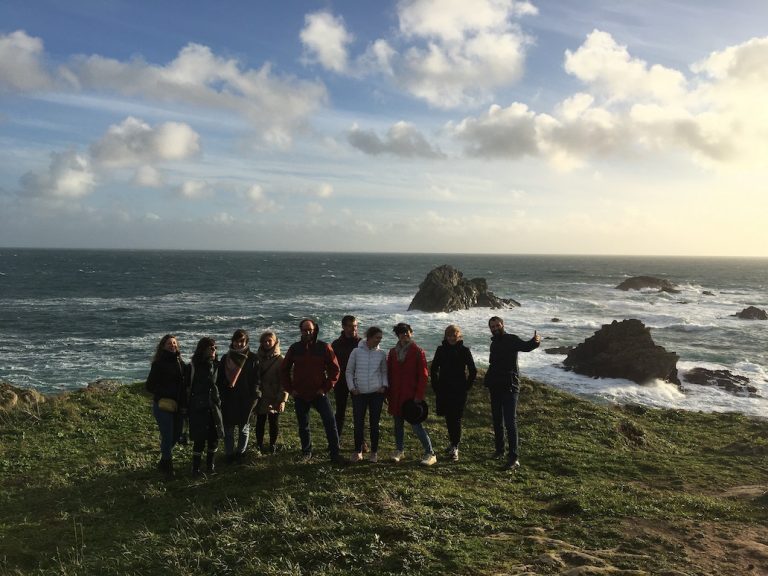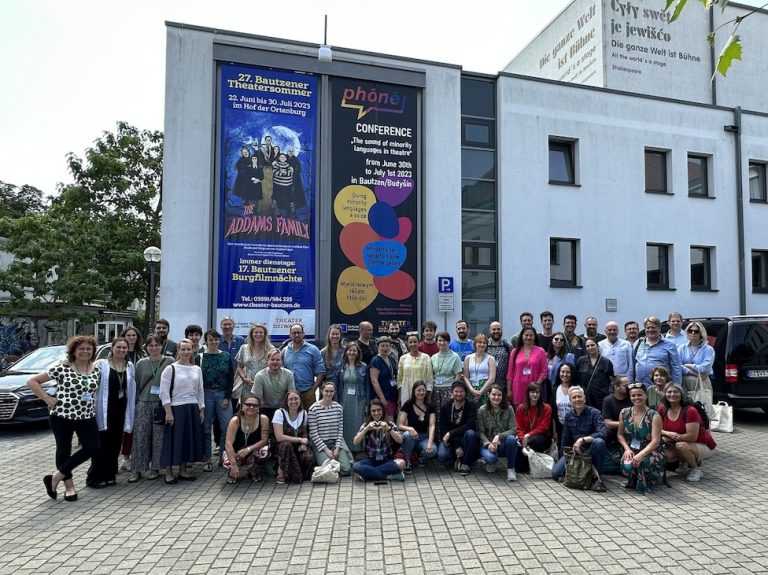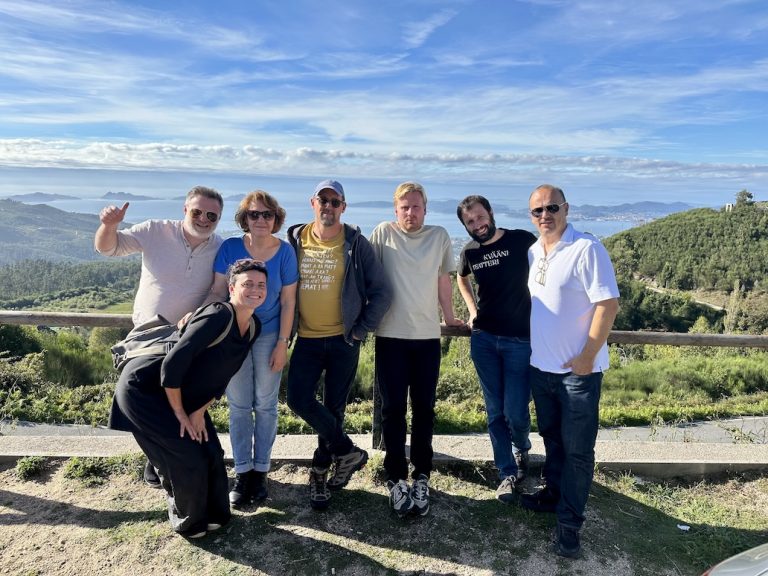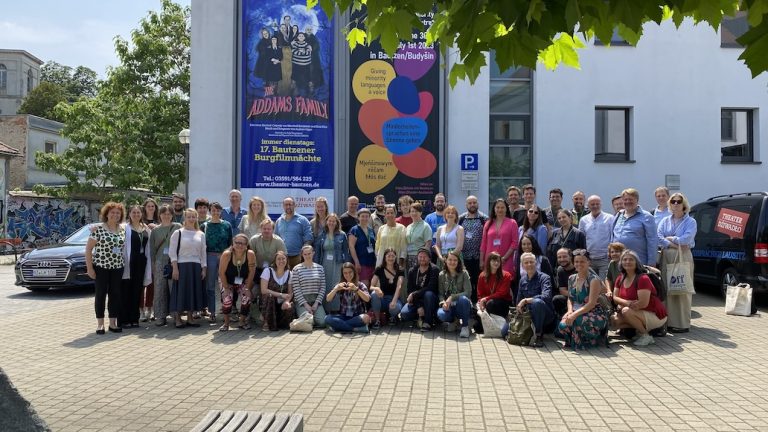
One of our highlights in this project so far was our conference in Bautzen at the Deutsch-Sorbisches Volkstheater. It was the start to the transition our project into a network – an important step towards a sustainable idea.
We met with 15 different regional, minority and indigenous language theatre makers and community speakers from all over the world for three days in Bautzen.
It was a really special and touching moment for the 120 spectators, when all these languages were staged in a theatrical moment to open the conference.
In Bautzen present have been Australia with Noongar language, a Hawaiian theatre from Honolulu, USA, Coastal Salish group and Squamish artist both from Vancouver, Canada. We heard several European minority languages like Catalan, Karaim and Meänkieli in addition to “our 8 project” languages.
In particular, the presence of representatives of the first nations languages, the information about their cultural and historical background made clear how important this meeting was.
Intense inside views on the (political) challenges in the indigenous culture in Theatre were part of the first day. Watching a Sorbian Puppet Play and the opportunity to dive into the extinguished Nepalese language of KUSUNDA in a unique VR experience completed the morning session.
In the afternoon we focused on theoretical experiences of our speakers coming from different institutes and Universities in Germany and France on topics like The Case of Minority Theatre in the Era of Globalization, Digitality in minority languages and linguistic imperialism. The idea of creating together a dictionary of all the present minority languages was introduced.
The first day was completed with the opening night of a one man show of the play Allotment gardenblues – Deceptive idyll in the outside venue of the theatre.
The second day we continued as well theoretical and have gained an overview of all the different present RML Theatres in Europe. In the afternoon session all the participants were split up in five different workshop groups dealing with different subjects and questions like:
- Tradition and Modernity
- Legacy and Transformation
- Minority and Majority
- One language and several languages
- Language, culture, landscape
- The global in the region and regional in the global
Out of these different aspects we developed together action points to transfer this project into a network.
The focus of the third day was on the interim evaluation by the Hanzehogschool in Groningen with the first results of their qualified interviews with the partners.
In the afternoon a guided city stroll into the old town of Bautzen plus a tour through the former prison of Bautzen reflecting on the GDR history, gave us an insight view not only on the Sorbian culture but as well on the history of the former GDR.

